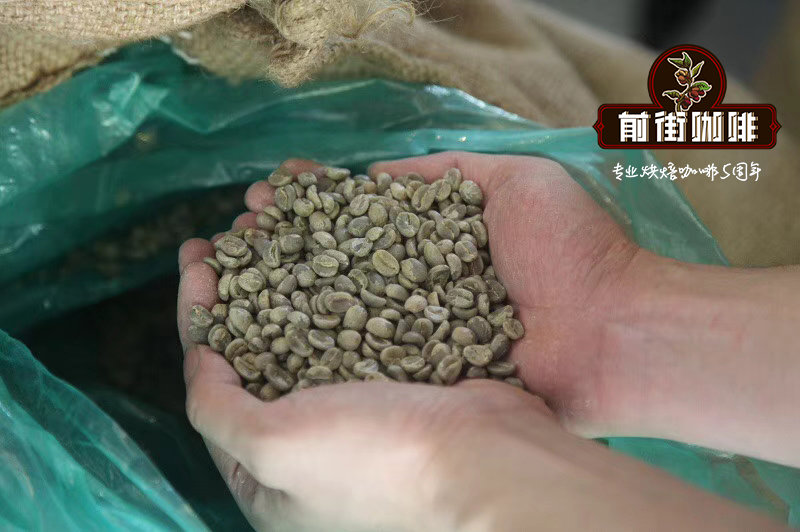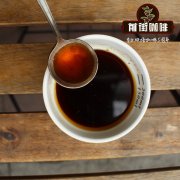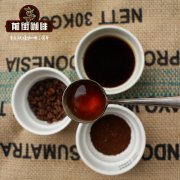How to make decaf? disadvantages of decaf beans? is decaf good?

Professional coffee knowledge exchange more coffee bean information please follow the coffee workshop (Wechat official account cafe_style)
Caffeine and low caffeine coffee beans
The most remarkable thing about caffeine is that the taste of coffee has nothing to do with how much caffeine it contains. Caffeine itself has a slight bitter taste, the concentration basically comes from the degree of roasting (the deeper it is, the thicker it is), and the concentration of coffee is formed by the ratio of coffee to water in the manufacturing process.
Bullet an average 142g cup of coffee contains 60-180mg (mg) of caffeine, depending on the concentration of the coffee and the type of coffee used when mixing.
Bullet A cup of average 42g (g) Espresso contains 90-120mg (mg) of caffeine, which also depends on the concentration of coffee and the type of coffee used when mixing.
Bullet roasting process has little effect on caffeine. Caffeine above 77 degrees Celsius can be quickly dissolved in water, so it has been completely dissolved with coffee during brewing.
Bullet different types of coffee trees also contain different amounts of caffeine. Arabica coffee contains about 1% per cent caffeine, while robusta coffee contains about 2% per cent caffeine.
Whether caffeine has an effect on health is a topic of great concern to many people. So far, there is no conclusive evidence that drinking coffee is harmful to human health.
Many studies have shown that coffee is actually good for the human body in many ways. For example, coffee can stimulate athletes to create better results, and the moderate stimulation caused by coffee is conducive to many daily activities, such as relieving work stress, refreshing effect and so on. Drinking a moderate amount of coffee will not affect human health, but it is a good drink.
Decaffeinated coffee beans:
All ways to remove caffeine are to increase the moisture content of green coffee beans (unroasted coffee beans), making it easy to remove caffeine. The caffeine is then extracted with a solvent, dried in the sun, and shipped to the roaster.
The solvents used to remove caffeine include water, ethyl acetate, chloromethane and carbon dioxide. Safe and tasty decaffeinated coffee can be produced by these methods. The flavor of decaffeinated coffee depends on the quality of the beans, the properties of the blend, the roasting techniques and the methods used to remove caffeine.
Defective beans were often found in the two kinds of treated low genetic beans.
Due to the same grade of raw beans as the control group
This phenomenon is obviously abnormal.
After discussion, we put forward several possible hypotheses.
First, low-caffeine coffee beans may not be properly preserved and stored, because after water bath treatment, the quality of the beans themselves will not be very tight, and the flavor will be lost more easily than normal beans. Under improper storage conditions, there will be some bad changes in the raw beans themselves.
Second, as we mentioned in the last article, the commonly used treatment method is Swiss water treatment, and finally there is a link of activated carbon treatment, which we have also popularized. Activated carbon is a very domineering substance, so it can be assumed that in the process of activated carbon treatment, not only caffeine is removed, other substances are also filtered and removed, and even some structural substances may have been removed. This can easily lead to the loss and loss of coffee bean contents.
Coffee beans can be regarded as growing beans. Like mung beans and soybeans, we soak the beans overnight before cooking mung bean soup or making soy milk, so that the dense beans will be soaked and soft, easy to stew or beat, the process of decaffeination always takes place in the solution, and the environment of high temperature and high pressure is needed, which aggravates the looseness of raw beans, filtered by activated carbon and then heated and dried. It is difficult not to lose the contents of coffee beans.
No matter which idea is right, or it may be a combination of the three, the result is obvious: the processed raw beans are loose, small in size, low in glossiness, often defective, and unpleasant smell, probably due to improper storage, even with some out-of-season flavor such as grease flavor, guess a serious loss of flavor.
Qianjie coffee: Guangzhou bakery, the store is small but a variety of beans, you can find a variety of unknown beans, but also provide online store services. Https://shop104210103.taobao.com
Important Notice :
前街咖啡 FrontStreet Coffee has moved to new addredd:
FrontStreet Coffee Address: 315,Donghua East Road,GuangZhou
Tel:020 38364473
- Prev

The difference between decaf beans and ordinary coffee beans. Is decaf harmful? price of decaf?
Professional coffee knowledge exchange more information about coffee beans Please follow the coffee workshop (Wechat official account cafe_style) once upon a time, people who drank decaf coffee (low-caffeine coffee) were always an unpopular group. The owners of the coffee shop dislike them for being nosy, and people who claim to be real coffee families also think that they are pretentious. They always seem to be sitting at the losers' table in the cafe.
- Next

Why is gold manning suitable for medium and deep baking? What's so good about golden manning coffee?
Professional coffee knowledge exchange more coffee bean information please follow the coffee workshop (Wechat official account cafe_style) [preface] recently many friends like to drink hand-brewed coffee that is not obviously sour, in addition to light-baked sun [red cherries], [berry orchards] and [Sidamo Sakuran], there are also medium-and deep-baked [Queen of Brazil], [Honduras] and [Golden Manning]
Related
- Beginners will see the "Coffee pull flower" guide!
- What is the difference between ice blog purified milk and ordinary milk coffee?
- Why is the Philippines the largest producer of crops in Liberia?
- For coffee extraction, should the fine powder be retained?
- How does extracted espresso fill pressed powder? How much strength does it take to press the powder?
- How to make jasmine cold extract coffee? Is the jasmine + latte good?
- Will this little toy really make the coffee taste better? How does Lily Drip affect coffee extraction?
- Will the action of slapping the filter cup also affect coffee extraction?
- What's the difference between powder-to-water ratio and powder-to-liquid ratio?
- What is the Ethiopian local species? What does it have to do with Heirloom native species?

